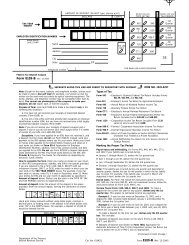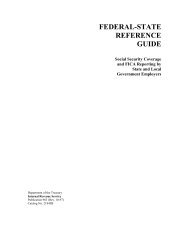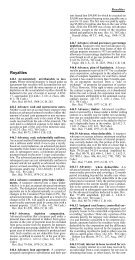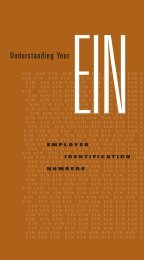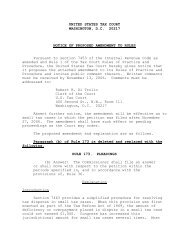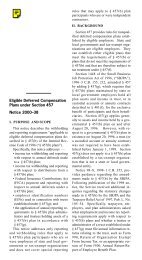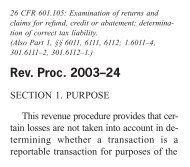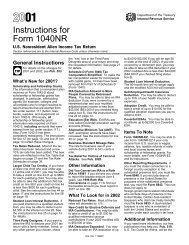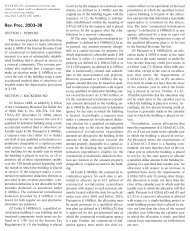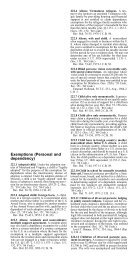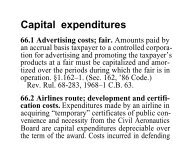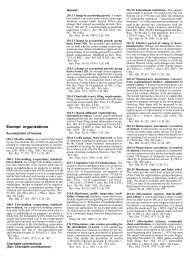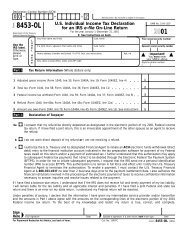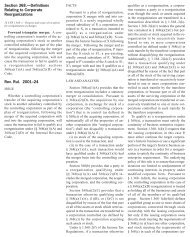Auto Dealerships - Audit Technique Guide - Uncle Fed's Tax*Board
Auto Dealerships - Audit Technique Guide - Uncle Fed's Tax*Board
Auto Dealerships - Audit Technique Guide - Uncle Fed's Tax*Board
You also want an ePaper? Increase the reach of your titles
YUMPU automatically turns print PDFs into web optimized ePapers that Google loves.
The Reinsurance Transaction<br />
To illustrate the nature of the dealership offshore reinsurance transaction, assume that a consumer<br />
purchases a credit life policy for $800. This form of insurance, credit life, is more prevalent in the<br />
dealership reinsurance arrangements.<br />
The dealership, acting as an agent for a regulated United States insurance company, sells an $800<br />
credit life contract to a consumer. The dealership retains $240 as commission income. The<br />
remaining $560 is sent to the regulated United States insurance company to purchase the credit<br />
life policy. The dealership reports commission income of $240.<br />
The "insurance company" may be serving as a "fronting company." A fronting company is one<br />
which assumes the original risk in the policy and passes that risk to the reinsurance company.<br />
Normally, the fronting company charges a fee of, assume $35, for an arrangement similar to our<br />
example. The fronting company will then reinsure, by transferring the risk and the remaining<br />
$525, to the offshore captive reinsurance company owned by the dealer.<br />
The insurance policy and the reinsurance agreement create the impression that business is being<br />
conducted "offshore." Upon request, the dealer will provide the agent with the reinsurance<br />
treaties and other documents that suggest foreign transactions. However, agents should follow<br />
the flow of the funds and will usually find that the funds never leave the dealership’s hometown.<br />
The reinsurance company may in form be in the Caribbean but in reality carries on its "business" at<br />
the dealership’s hometown bank. They usually do not have their own separate business location.<br />
Their address is usually the same as the dealership’s or the dealer’s residence. Usually, the bank<br />
account includes the name of the dealer who has control over it.<br />
It is important to remember that most producer owned reinsurance companies often do not<br />
reinsure any risk other than that of contracts written by dealerships owned by the sole shareholder<br />
of the reinsurance company.<br />
Any claims the consumer may make will be against funds collected by the fronting company and<br />
retained by the reinsurance company/hometown bank account. The dealer may have access to<br />
these funds. These reinsurance companies are not regulated, the dealer may hold these funds in<br />
any form; the dealer may invest, declare a dividend, or take a loan.<br />
If a Form 1120-PC is filed, reserves calculated by representatives of the promoter may be used to<br />
reduce the reinsurance companies income under IRC section 832. The William T. Wright case,<br />
below, informs us of dealership offshore reinsurance companies who consistently overstated<br />
reserves. (Please see Appendix). The premium income earned by a non-life insurance company<br />
may be tax exempt if it remains below $350,000. With overstated reserves and paid out claims,<br />
companies would never pay taxes. Effectively, all income earned by these transactions was not<br />
taxed.<br />
13-4



